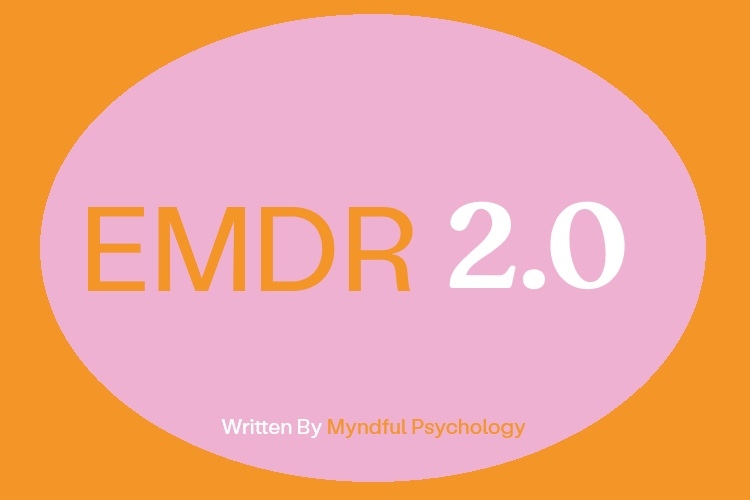Trauma and PTSD
Trauma and Post-Traumatic Stress Disorder (PTSD) are terms often heard in conversations about mental health, but they can feel complex and difficult to understand.
In this article, we aim to break down what trauma and PTSD are, their symptoms, causes, and what you can do to seek help if you or someone you love is struggling.
What is Trauma?
Trauma refers to the emotional and psychological response to an intensely distressing or disturbing event. This could be anything from experiencing or witnessing a life-threatening event, an accident, natural disaster, violence, or abuse. Trauma can deeply affect a person’s sense of safety and well-being, leading to long-lasting emotional pain and distress.
Common Causes of Trauma
- Witnessing or experiencing violence, including domestic violence or physical assault
- Childhood abuse, whether physical, emotional, or sexual
- Experiencing sexual assault
- Bullying
- Being involved in a serious accident, such as a motor vehicle crash
- Living through a natural disaster, including floods, bushfires, hurricanes, or earthquakes
- Exposure to military combat or war-related trauma
- Anxiety, fears, and phobias
- Attachment issues (anxious-attachment, avoidant-attachment and emeshment)
- Grief or unresolved loss
- Sudden life events e.g., breakups, job loss
- Medical trauma such as serious injury, illness, frigtening medical procedures, or difficult hospital stays
- Chronic pain and chronic illness
Common types of trauma include:
-
Acute trauma: Resulting from a single, isolated incident.
-
Chronic trauma: Caused by repeated or prolonged exposure to highly stressful events (such as ongoing domestic violence or bullying).
-
Complex trauma: Occurs when someone experiences multiple traumatic events, often of an interpersonal nature, and may result in more severe psychological challenges.
Common Signs of Trauma
- A feeling of being constantly on edge (hypervigilance)
- Intrusive thoughts or flashbacks
- Nightmares or sleep disturbances
- Persistent distressing emotions like fear, sadness, or shame
- Emotional numbness or disconnection
- Feelings of guilt, hopelessness, or self-blame
- Unexplained physical symptoms such as chronic pain, headaches, or digestive issues
- Low mood or depression
- Body anxiety and fear
- Confusion masking fear
- Panic from trauma
- Self-loathing and “I'm not good enough” thoughts
- Trauma-related body sensations
- Performance or confidence blocks
- Low self-esteem and self-worth
PTSD
What is PTSD?
Post-Traumatic Stress Disorder (PTSD) is a mental health condition that can develop after someone has experienced or witnessed a traumatic event. While many people will experience some form of distress after a traumatic event, for some, these symptoms can persist and become overwhelming, affecting their ability to function in daily life.
PTSD is characterized by intense, disturbing thoughts and feelings related to the trauma, which persist long after the traumatic event has ended.
Symptoms of PTSD
Symptoms of PTSD typically fall into four categories:
-
Intrusive thoughts: These include flashbacks, nightmares, or unwanted memories of the traumatic event. Sometimes these thoughts are triggered by reminders of the trauma.
-
Avoidance: People with PTSD may avoid situations, people, or places that remind them of the traumatic event. They might also avoid talking about what happened, which can lead to emotional numbness.
-
Negative changes in thinking and mood: This includes persistent feelings of guilt, shame, or hopelessness. Someone with PTSD may have difficulty recalling important aspects of the traumatic event, or they might feel detached from friends and loved ones.
-
Reactivity symptoms: These involve being easily startled, feeling on edge, experiencing irritability, or having trouble concentrating. Some people may also struggle with sleep disturbances or anger outbursts.
Common Causes of PTSD
Not everyone who experiences trauma will develop post-traumatic stress disorder (PTSD). However, certain types of events and experiences can significantly increase the risk. Common causes of PTSD include:
- Witnessing or experiencing violence, including domestic violence or physical assault
- Childhood abuse, whether physical, emotional, or sexual
- Experiencing sexual assault
- Being involved in a serious accident, such as a motor vehicle crash
- Living through a natural disaster, including floods, bushfires, hurricanes, or earthquakes
- Exposure to military combat or war-related trauma
It's important to note that PTSD can affect anyone, at any stage of life, although it is more common in people who have experienced severe or repeated trauma.
The Impact of PTSD
Without proper treatment, PTSD can have a significant impact on daily life, relationships, and overall well-being. People with PTSD may feel disconnected from others, struggle with work or school, and develop other mental health issues, such as anxiety, depression, or substance abuse. They may also feel trapped in a cycle of re-experiencing the trauma through flashbacks and nightmares.
How is PTSD Treated?
There are several effective treatments for PTSD, and seeking help from a qualified psychologist can significantly improve the quality of life for someone struggling with the condition. Treatment usually involves psychological therapy and sometimes medication.
How can trauma and PTSD be treated
A qualified psychologist can recomment the appropriate treatment for your condition. A common and effective treatement for trauma and PTSD is EMDR.
EMDR Intensive Therapy
An EMDR Intensive Therapy Program is an accellerated, structured therapy approach that provides multiple hours of EMDR therapy over a condensed timeframe. Unlike traditional weekly or fortnightly sessions, EMDR Intensive Therapy offers a focused, immersive format that supports faster and more effective processing of trauma, anxiety, and distressing life experiences.
We can help
If you or someone you love is experiencing symptoms of PTSD or is struggling after a traumatic event, it’s important to seek help from a qualified psychologist. Therapy can provide a safe space to process trauma and develop coping strategies to manage symptoms. Early intervention can be key in preventing PTSD from worsening.
Our qualified psychologists are experienced in helping people to deal with the effects of trauma and PTSD.




